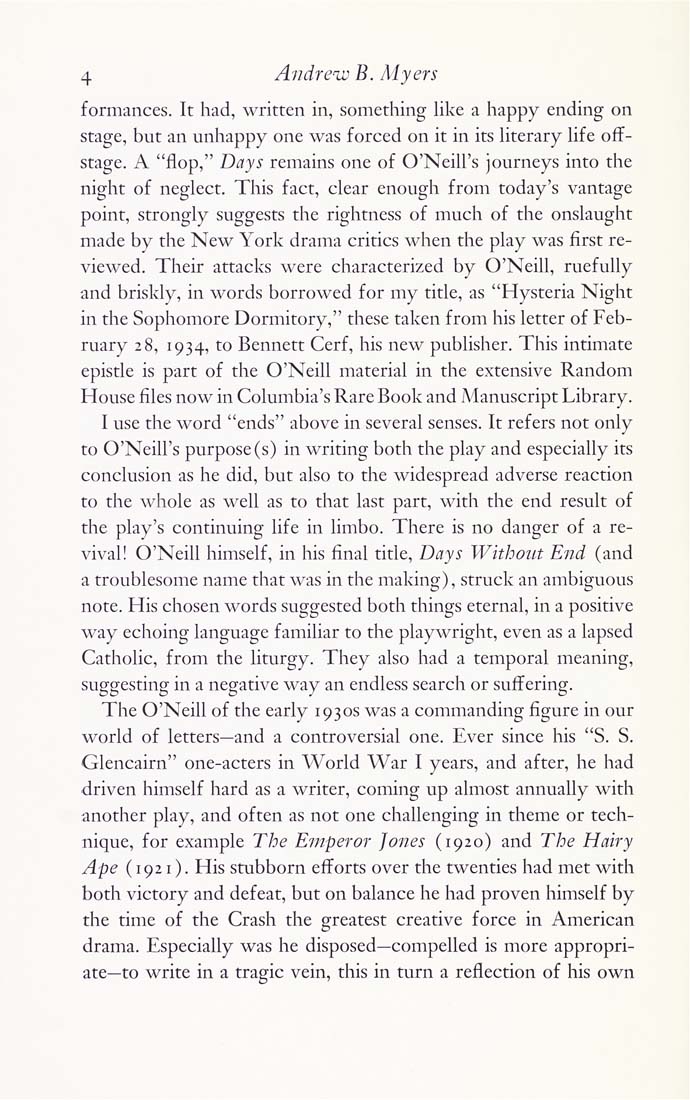Columbia Library columns (v.28(1978Nov-1979May))
(New York : Friends of the Columbia Libraries. )
|
||
|
|
|
|
| v.28,no.2(1979:Feb): Page 4 |

4 Andrew B. Myers formances. It had, written in, something like a happy ending on stage, but an unhappy one was forced on it in its literary life off¬ stage. A "flop," Days remains one of O'Neill's journeys into the night of neglect. This fact, clear enough from today's vantage point, strongly suggests the tightness of much of the onslaught made by the New York drama critics when the play was first re¬ viewed. Their attacks were characterized by O'Neill, ruefully and briskly, in words borrowed for my title, as "Hysteria Night in the Sophomore Dormitory," these taken from his letter of Feb¬ ruary 28, 1934, to Bennett Cerf, his new publisher. This intimate epistle is part of the O'Neill material in the extensive Random House files now in Columbia's Rare Book and Manuscript Library. I use the word "ends" above in several senses. It refers not only to O'Neill's purpose(s) in writing both the play and especially its conclusion as he did, but also to the widespread adverse reaction to the whole as well as to that last part, with the end result of the play's continuing life in limbo. There is no danger of a re¬ vival! O'Neill himself, in his final title, Days Without End (and a troublesome name that was in the making), struck an ambiguous note. His chosen words suggested both things eternal, in a positive way echoing language familiar to the playwright, even as a lapsed Catholic, from the liturgy. They also had a temporal meaning, suggesting in a negative way an endless search or suffering. The O'Neill of the early 1930s was a commanding figure in our world of letters—and a controversial one. Ever since his "S. S. Glencairn" one-acters in World War I years, and after, he had driven himself hard as a writer, coming up almost annually with another play, and often as not one challenging in theme or tech¬ nique, for example The Emperor Jones (1920) and The Hairy Ape (1921). His stubborn efforts over the twenties had met with both victory and defeat, but on balance he had proven himself by the time of the Crash the greatest creative force in American drama. Especially was he disposed—compelled is more appropri¬ ate—to write in a tragic vein, this in turn a reflection of his own |
| v.28,no.2(1979:Feb): Page 4 |







